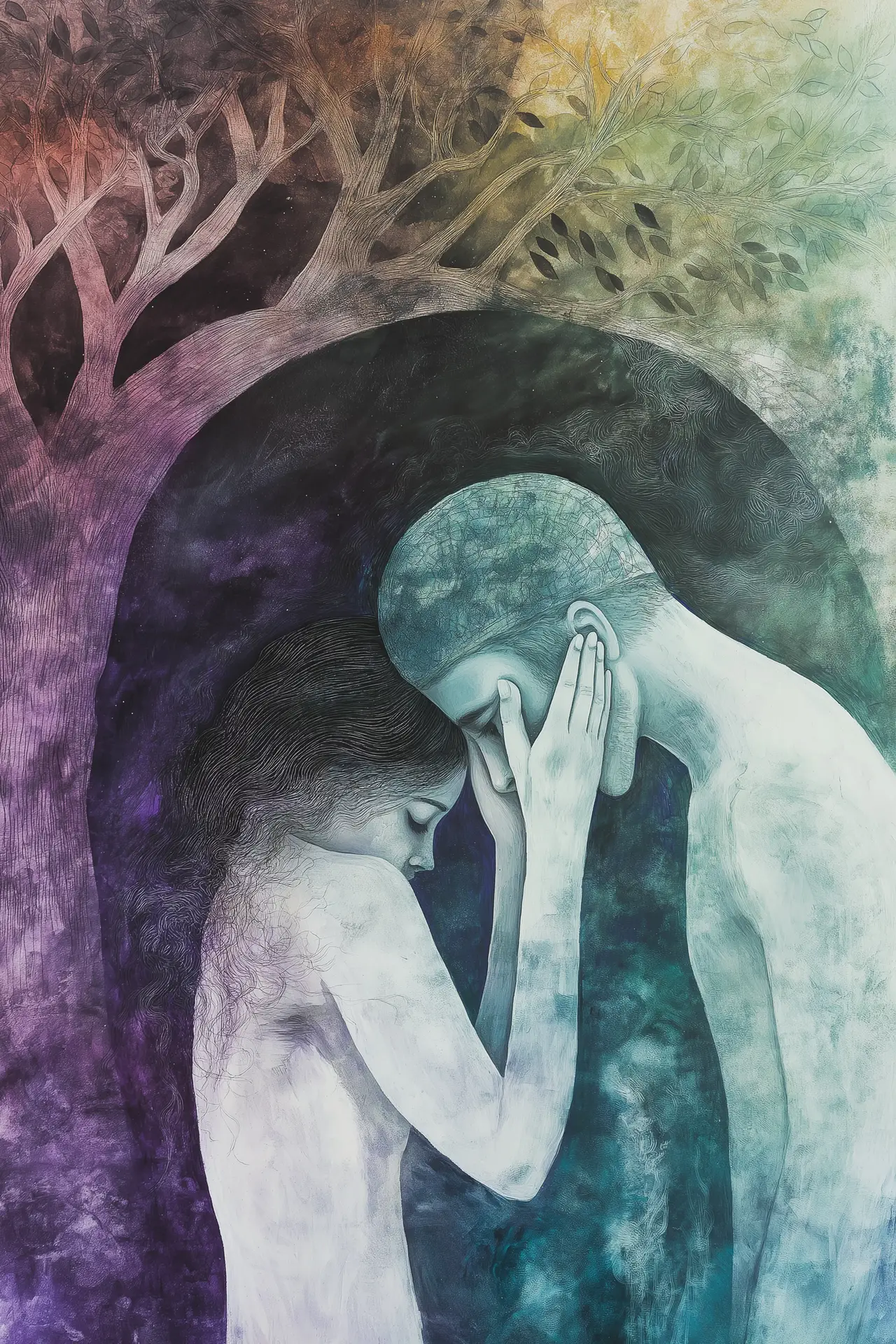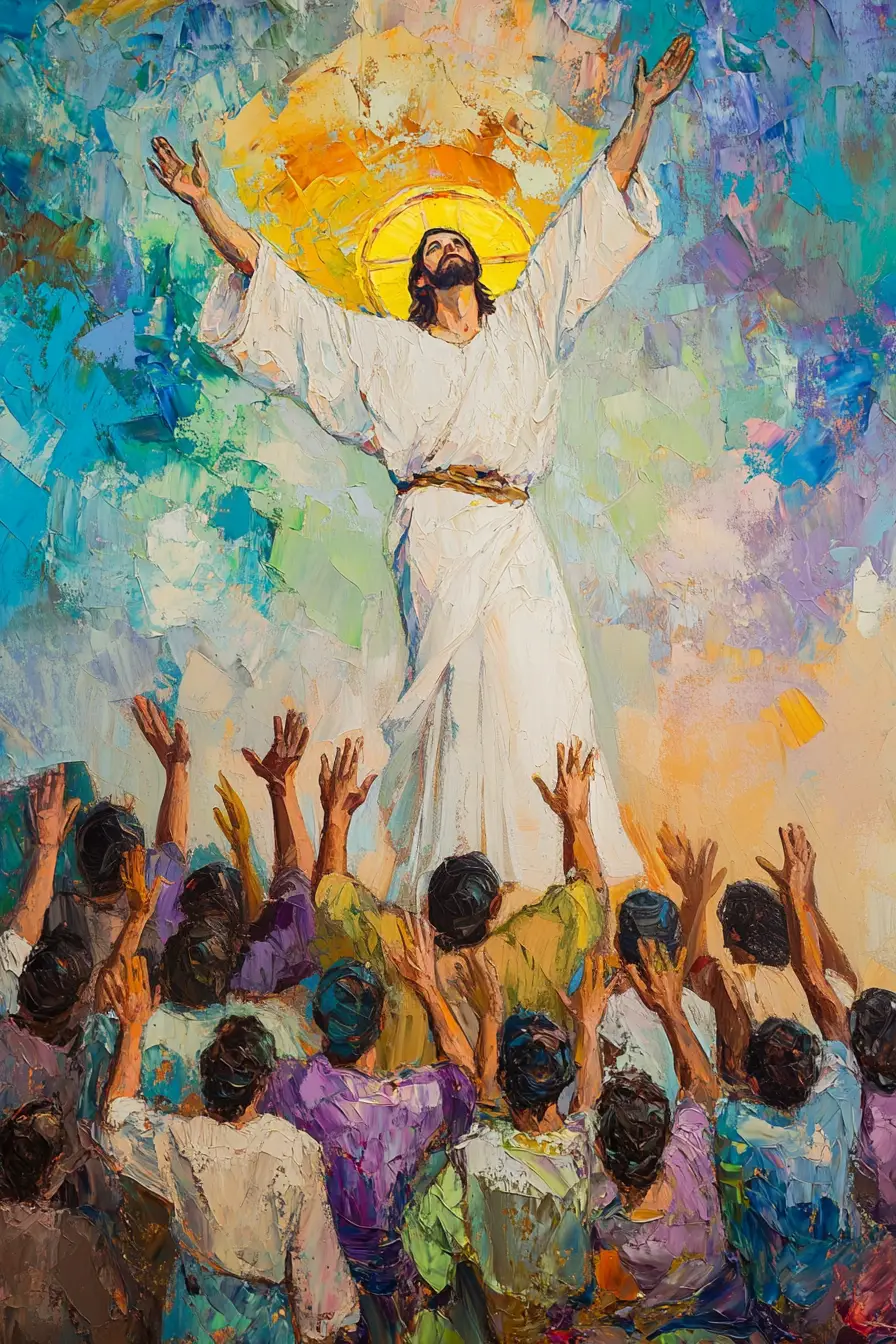Gospel
The Gospel: the Good News of Redemption and Restoration
Have you ever walked through the ancient streets of Braga and wondered about life’s deeper meaning? Like our city’s historic churches that point to something greater than ourselves, the gospel—or “good news”—tells the story of God’s love for humanity and His plan to restore all things. It’s the central message of Christianity, proclaiming the salvation that God has provided through Jesus Christ. In evangelical and Reformed Christian belief, the gospel is more than a set of doctrines; it’s a living story that speaks to the deepest needs of humanity and answers the great questions of existence. In this article, we will explore the gospel through the lens of the Bible’s grand narrative, which unfolds in four stages: Creation, Fall, Redemption, and Consummation.
Creation: God’s Perfect Beginning
The Bible begins with the story of creation. “In the beginning, God created the heavens and the earth” (Genesis 1:1). Christians believe that God is the Creator of everything that exists, and that He made it all good. He formed everything—from the rolling hills of the Minho to the smallest flower in Bom Jesus do Monte—to reflect His glory. Humanity, however, holds a special place in creation. The Bible tells us that God made people “in His own image” (Genesis 1:27), which means we are created to reflect His character, enjoy a personal relationship with Him, and steward His creation responsibly.
In this original state, humanity lived in harmony with God, each other, and the world around them. There was no suffering, pain, or death—only peace, purpose, and joy in the presence of God. This is what Christians call “shalom,” a Hebrew word meaning peace, wholeness, and completeness.

Fall: Humanity’s Rebellion Against God
Tragically, this peace was broken. Humanity, represented by the first man and woman, Adam and Eve, chose to disobey God’s command, seeking independence from Him and attempting to define good and evil on their own terms. This event, known as the Fall, is recorded in Genesis 3. Through their disobedience, sin entered the world, and with it came suffering, death, and separation from God.
The Fall affected all of creation. Humans, now marked by sin, experience broken relationships, guilt, and shame. Our ability to live in harmony with one another and with creation is disrupted, and we face the painful realities of conflict, disease, and death. The world, once a perfect reflection of God’s glory, became a place of suffering and struggle. This brokenness affects every part of human life—our thoughts, desires, actions, and even the natural world.
Despite this, God did not abandon His creation. Even in the midst of judgment, He promised that one day, the “seed of the woman” would come to crush the power of evil (Genesis 3:15). This is the first promise of redemption, a promise that God would one day send a Savior to restore what had been lost.

Redemption: God’s Plan to Save and Restore
Throughout the Old Testament, God reveals His plan to redeem His people. He chooses Abraham and his descendants, the people of Israel, through whom He will bring blessing to all the nations of the world (Genesis 12:2-3). The history of Israel is a complex story of God’s covenant love and human rebellion, yet God remains faithful, continually calling His people to return to Him.
The central event of the gospel is the coming of Jesus Christ, whom Christians believe to be the promised Savior and the fulfillment of God’s covenant promises. Jesus, fully God and fully human, came into the world to live a life of perfect obedience, free from sin. He taught about God’s kingdom, healed the sick, loved the outcasts, and demonstrated the compassion of God.
But He did something even more remarkable. On a cross outside Jerusalem, Jesus willingly took the punishment our sins deserved. As the Apostle Paul writes, “God made Him who knew no sin to be sin for us, so that in Him we might become the righteousness of God” (2 Corinthians 5:21). Jesus willingly went to the cross, where He suffered and died as a sacrifice for the sins of his people. Jesus took the penalty that we deserved so that we could be forgiven and restored to a right relationship with God.
But the story does not end with Jesus’s death. Death couldn’t hold Him. Three days later, Jesus rose from the dead, proving His power over sin and death and offering us the hope of new life. This resurrection is central to the Christian faith, for it shows that Jesus has conquered death and that God’s justice with respect to the sins of his people is fully satisfied. Through faith in Him, this satisfaction can be applied to us and we can have eternal life.

Consummation: The Renewal of All Things
This isn’t just an ancient story—it’s a living reality that transforms lives today. Through faith in Jesus, we receive:
- Forgiveness for our past
- A new identity as God’s children
- Purpose for our present
- Hope for our future
- The Holy Spirit’s power to live differently
The gospel story also points us to the future. Christians believe that Jesus will one day return to complete His work of redemption and to judge the world. This final stage, known as the consummation, is when God will make all things new. The book of Revelation describes a vision of this renewed creation, where God will dwell with His people, and there will be no more pain, suffering, or death. “He will wipe away every tear from their eyes, and death shall be no more” (Revelation 21:4).
In this new creation, the effects of sin will be fully undone. The earth will be restored to its original beauty, and redeemed humanity (all those who have been reconciled to God through faith in Jesus Christ) will live in perfect harmony with God, each other, and creation. The Bible calls this the “new heavens and new earth” (Revelation 21:1), a place of perfect peace and joy in the presence of God. This is the ultimate hope of the Christian faith: a future where all that is broken will be restored, where justice and righteousness will reign, and where we will live in God’s presence forever.

The Invitation of the Gospel
The gospel is, at its heart, an invitation. It calls each person to turn away from sin and self-reliance and to trust in Jesus Christ as Savior and Lord. This act of faith, often called “repentance and faith,” is how a person begins a new life with God. Jesus Himself extended this invitation when He said, “Come to me, all who labor and are heavy laden, and I will give you rest” (Matthew 11:28).
For Christians, accepting the gospel means entering into a relationship with God, one marked by forgiveness, transformation, and hope. Through faith, we are united with Christ, and His life, death, and resurrection become the foundation of our lives. We are forgiven, adopted into God’s family, and empowered by the Holy Spirit to live a life that reflects God’s love, mercy, and justice.
The Gospel in Everyday Life
The gospel is not just a message about what happens after we die; it has profound implications for life today. It calls us to live in a way that reflects the love and holiness of God, to seek justice, to love our neighbors, and to care for the world around us. It gives us purpose, meaning, and direction, offering a vision of life as it was meant to be—life with God at the center.
In summary, the gospel is the story of God’s love and redemption. It begins with creation, is marked by humanity’s fall into sin, unfolds in God’s redemptive work through Jesus Christ, and reaches its fulfillment in the renewal of all things. This is the hope that Christians cling to, the good news that we are called to share, and the foundation of a life transformed by God’s grace.
